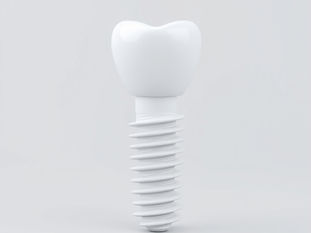
Understanding the Fluoride Debate in Dentistry Exploring Pros, Cons, and Natural Alternatives
Jul 27, 2025
4 min read
0
5
0
The discussion around fluoride in dentistry often stirs strong opinions. For many health professionals, fluoride's ability to prevent cavities is a cornerstone of oral health. However, others express serious concerns about its safety and ethics. This article will explore the arguments for and against fluoride use, share insights from health care experts, and examine natural alternatives like Hydroxyapatite.
The History of Fluoride in Dentistry
Fluoride is a mineral that has been linked to better dental health since the mid-20th century. It became widely used in drinking water and dental products to help reduce cavities. Research shows that fluoride can help remineralize enamel and reduce rates of tooth decay. For example, communities that implemented water fluoridation saw dental cavities drop by up to 60%.
The Pros of Fluoride (as per conventional dentistry)
Cavity Prevention
Fluoride's chief benefit is its effectiveness in preventing cavities. Studies consistently reveal that areas with fluoridated water have significantly fewer cavities. A landmark study in 2013 found that children in fluoridated communities experienced 25% fewer cavities than those in non-fluoridated areas. Fluoride strengthens dental enamel, making teeth more resistant to acid attacks from plaque bacteria.
Economic Benefits
Fluoride's economic advantages are notable. Preventing cavities through fluoride treatments can significantly lower the need for expensive dental interventions. A survey conducted by the CDC indicated that every dollar invested in community water fluoridation saves up to $38 in dental costs. This is critical for families and health care systems, especially in areas with limited access to dental care.
Positive Impact on Public Health
Fluoride is often celebrated as a vital public health measure. The CDC cites community water fluoridation as one of the top public health achievements of the 20th century due to its substantial effect on reducing dental disease rates. In fact, studies show that since water fluoridation began, there has been a 40% drop in tooth decay among children.
The Cons of Fluoride
Health Concerns
While fluoride has benefits, there are health concerns that cannot be ignored. Some studies link excessive fluoride consumption to issues like dental fluorosis, which causes discoloration and pitting of teeth, and potentially impacts bone health. Research published in the journal Environmental Health Perspectives noted that high fluoride exposure may affect cognitive function. Critics call for more research into the effects of long-term fluoride exposure, especially for vulnerable groups like young children.
Ethical and Autonomy Issues
Another significant point is the ethical question of fluoridation. Opponents argue that adding fluoride to public water systems is akin to medicating without consent. They believe individuals should have the choice about what goes into their bodies, particularly for substances that may pose health risks. A 2015 survey found that 54% of respondents felt that publicly fluoridating water violates personal rights.
Questions About Efficacy
Some health care professionals question the necessity of widespread fluoridation when fluoride is already abundant in toothpaste and rinses. They argue that for many individuals, especially in urban areas, additional fluoride may not significantly enhance protection against cavities. A 2017 report from the World Health Organization suggests that in countries with high levels of fluoride toothpaste use, fluoridation might be unnecessary.
Conclusion: Avoid if unnecessary, prevention is key
The fluoride debate is most meaningful when approached with both scientific insight and precaution. While some professionals advocate for excessive use, growing research raises valid concerns about fluoride’s potential health risks - particularly for children. Rather than using it routinely, it is more prudent to limit exposure wherever possible. Occasional, localized use may not be harmful, but consistent or widespread use should be reconsidered. Staying informed and discussing safe, natural alternatives with your dental professional can help support effective and safer oral care.
Exploring Natural Alternatives
As the debate continues, interest in alternatives to fluoride is growing. One increasingly discussed option is Hydroxyapatite, a natural mineral that is a key component of tooth enamel. Studies suggest it may remineralize teeth effectively, providing similar protective benefits to fluoride without some of the associated health concerns.
Benefits of Hydroxyapatite
Research indicates that Hydroxyapatite not only helps remineralize teeth but also reduces sensitivity, presenting a valuable option for those prone to dental discomfort. For instance, in a clinical trial, 90% of participants using Hydroxyapatite reported a decrease in tooth sensitivity after just two weeks of use. This makes it particularly appealing for parents who seek safer dental care products for their young children.
Environmentally Friendly
Additionally, Hydroxyapatite is a more sustainable choice. Unlike fluoride, which often comes from industrial byproducts, Hydroxyapatite can be synthetically produced in ways that are better for the environment. This aspect resonates with a growing number of consumers who prioritize eco-friendly options in their health regimens.
Closing Thoughts
The fluoride debate in dentistry highlights a range of valid viewpoints. While fluoride has proven effectiveness in preventing cavities and offers economic benefits, concerns about health impacts and ethical considerations are significant.
For those worried about fluoride, especially parents, staying informed is key. Engaging with dental professionals about safest practices and considering natural alternatives like Hydroxyapatite can help maintain dental health without excessive fluoride exposure.
In a world rich with choices, understanding the fluoride controversy empowers individuals to make informed decisions about their dental health. As research evolves, we hope for clearer answers that will shape future dental practices effectively.
Disclaimer: This article is for informational purposes only and does not constitute medical or dental advice. Each case is unique, always consult with your dentist, physician, or qualified healthcare provider before making decisions about your health or treatments.












